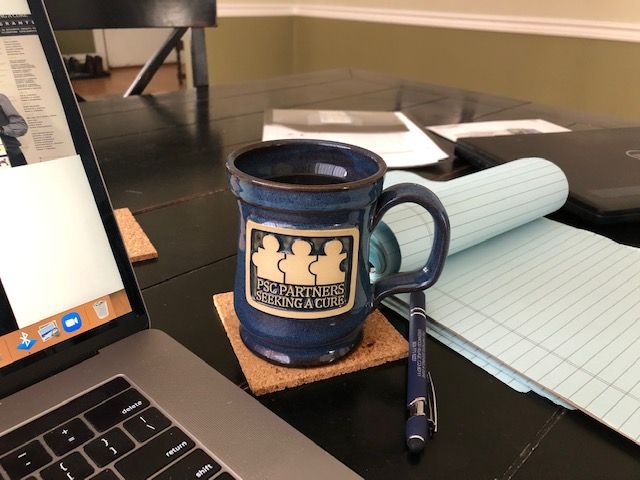
The PSC Partners Patient Registry entered the hepatology community at precisely the right time. We were right there with the NIH in 2010 when discussions focused on patient-driven registries as being the most effective way of giving the silent rare-disease patients a voice. The NIH worked with us to create a secure portal that would gather general patient data under one roof. We came in at the right time also because this was the dawn of a new era for PSC, with fresh interest in conducting clinical trials for our disease and in meeting the challenge of decoding a disease that has been described as the “black box of liver diseases.”
Dr. Christopher Bowlus of University of California Davis, scientific head of our registry and Co-Chair of our Scientific/Medical Advisory Committee, presented posters and lectures in three major hepatology and GI meetings in the United States and Europe (AASLD, EASL, and DDW) and demonstrated that the data in our patient-driven registry was comparable to that of existing physician/researcher-driven PSC registries. There is no doubt that our patients and their caregivers are excellent chroniclers of their health. That goes along with having a rare disease and needing to endlessly provide health-status information to numerous health-care professionals.
With our registry currently containing the data of 1,193 international PSCers, this tool, growing and transforming as time goes by, in its four years of existence has already served us well. In February 2016, our registry participants completed a survey for the FDA/AASLD PSC Clinical Trial Endpoints Workshop, and the patient responses were presented by PSC Partners CEO Ricky Safer. We’ve worked with eight pharmaceutical companies and academic researchers conducting clinical trials, and many are approaching us, knowing that our registry houses the data of a powerful, active, and responsive community. The registry in many ways pulls us away from being a rare disease. Researchers don’t have to look hard to find us. We are there, growing in numbers, ready to respond to researchers when we are able to.
And our voice is growing louder. Last month, the PSC Partners Patient Registry community rallied as Ricky Safer prepared to present the patients’ perspective on clinical-trial participation at “Emerging Trends Conference – Cholangiopathies: The Dawn of Curative Treatments?” in Washington DC, to an audience of hepatologists, clinicians, researchers, Food and Drug Administration (FDA) representatives and scientists in pharmaceutical companies. These stakeholders gathered to discuss gaps that slow down bile duct disease research. Among these scientists, Ricky Safer, herself a PSC patient, presented the gaps from the patients’ perspective. Through a grass-roots effort to reach the patients, a survey was created and sent to all the registry participants throughout the world. Within a week, 402 registry participants provided their candid views on why they would or would not take part in clinical trials. This was not a scientific survey nor did it go through scientific analysis. These were honest comments patients usually exchange among themselves, with no filters and no reservations. PSC Partners did not expect the effusive response it received from the medical community. Ricky Safer was asked to repeat her presentation, this time in Paris at the second PSC Forum meeting that will take place on April 10th. Some physicians have reached out to Ricky Safer and have asked to collaborate with PSC Partners to ensure accurate and substantial patient representation in their future clinical trials and in PSC research. Since the FDA recently established a requirement for patient involvement at every step of a clinical trial, we have an unequaled opportunity to facilitate research and to have our voices heard. If you are a PSC patient, join the registry and take an active part in PSC research! Your voice matters! And if you are a hepatologist treating our patients, please tell them about our patient community and encourage them to join the PSC Partners Patient Registry. Learn more at www.pscpartnersregistry.org.
PSC PARTNERS CO-AUTHORED STUDIES USING REGISTRY DATA
“Development and Validation of a Primary Sclerosing Cholangitis Specific Patient-Reported Outcome (PSC PRO) Instrument,” Hepatology, Nov. 2017. Younossi ZM, Afendy A, Stepanova M, Racila A, Nader F, Gomel R, Safer R,Lenderking WR, Skalicky A, Kleinman L, Myers RP, Subramanian GM, McHutchison JG, Levy C, Bowlus CL, Kowdley K, Muir AJ https://www.ncbi.nlm.nih.gov/pubmed/29152767
“Characteristics and patient reported outcomes of primary sclerosing cholangitis from a patient-driven online registry.” Alexander Kuo, Rachel Gomel, Ricky Safer, Keith Lindor, Gregory Everson, Christopher Bowlus, Clinical Gastroenterology and Hepatology (waiting for publication)
Two articles on the confusion in differentiating PSC from PBC as a result of the PBC name change from primary biliary cirrhosis to primary biliary cholangitis and the role of the PSC Partners Patient Registry. In HEALIO Gastroenterology, April 2017 and press release that was distributed to GI and Hepatologists http://www.prweb.com/releases/2017/04/prweb14257684.htm





